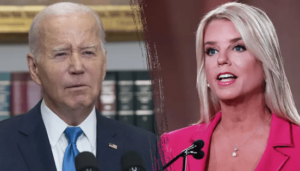There is an ongoing debate about the role of presidential clemency in the U.S. justice system, particularly regarding individuals serving the most severe sentences. Some believe that reducing sentences can be a step toward criminal justice reform, while others argue it undermines the legal process and the rights of victims’ families.

Former Florida Attorney General Pam Bondi has been vocal about the potential consequences of such clemency decisions. She has expressed concerns that granting reduced sentences for individuals convicted of serious offenses could weaken public trust in the justice system. Bondi argues that legal processes should prioritize victims’ rights and ensure that justice is served as originally intended by courts and juries.
Supporters of clemency, however, view it as a necessary step toward addressing systemic issues in the criminal justice system. They argue that the most severe punishments are irreversible and that, in some cases, errors in the judicial process have led to unfair sentences. Advocates also point to disparities in sentencing, suggesting that certain communities are disproportionately affected by the harshest penalties.
The debate extends beyond legal concerns into ethical and political discussions. Some believe that presidential clemency is an essential check on the judicial system, allowing for corrections in cases where sentencing may have been overly harsh. Others worry that such actions set a precedent that could impact future criminal justice policies.
As discussions continue, legal experts, lawmakers, and victims’ families remain divided on the issue. The future of sentencing policies and the use of clemency powers will likely remain a topic of intense public debate in the months ahead.





